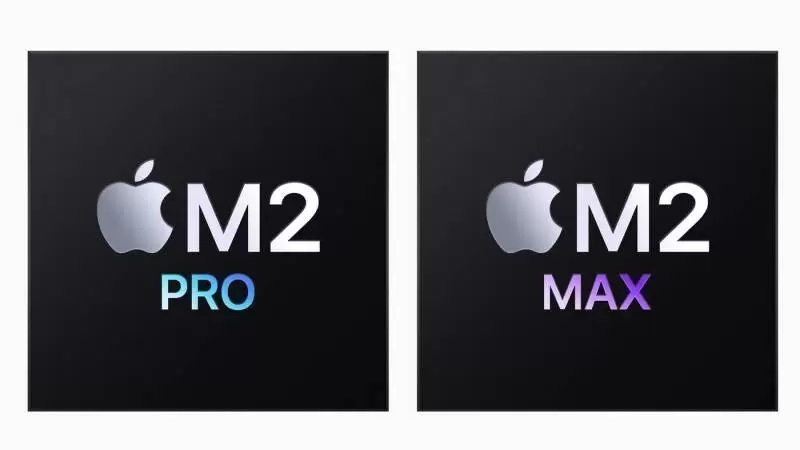Apple has revealed Apple M2 Pro and M32 Max chipsets. It feels like yesterday when the mega-brand launched the M2 chipset back in the June of 2021. That chipset was nights and days better than the original M1 chipset. The iPhones and MacBook laptops saw an improvement of 35% performance enhancement in GPU and 18% in CPU.
However, today the brand launched two more powerful chipsets that are about to change the processing speed and performance game in the industry. These powerful chips will deliver more cores and add a lot more support for bigger memory options.

Here is everything you need to know about the new Apple M2 Pro and M2 Max chipsets.
Apple M2 Pro and M32 Max
The two new chipsets will be front and center in the latest and upcoming Apple products. Apple has announced that new chipsets will be added to the following new gadgets:
- Mac Mini
- MacBook Pro 14 Inch
- MacBook Pro 16 Inch
Apple M2 Pro
The M2 Pro chipset from Apple is constructed on a 5nm node that is in its second generation. It boasts 40 billion transistors, which is a 20% increase compared to the M1 Pro. Additionally, the new chip is capable of handling up to 32GB of unified memory with a bandwidth of 200GB/s.
The M2 Pro features either 10 or 12 CPU cores, comprising either 6 or 8 high-performance cores and 4 high-efficiency cores. Additionally, it is equipped with up to 19 GPU cores, and a larger L2 cache. This leads to an improvement of up to 20% in CPU performance when compared to the M1 Pro (10-core) and an increase of 30% in GPU performance.
Apple M2 Max
The Apple M2 Max chip boasts a staggering 67 billion transistors, a threefold increase compared to the base M2. Additionally, it can handle up to 96GB of unified memory, four times more than what the M2 can support, and with a speed of 400GB/s which is twice as fast as the M2 Pro. The CPU in the M2 Max is identical to the 12-core version of the M2 Pro. However, the GPU is larger, with up to 38 cores and the L2 cache is even bigger as well.
Both the Apple M2 Pro and M2 Max share some similar hardware components. Both are equipped with a 16-core Neural Engine that can perform 15.8 TOPS, which is 40% faster than the previous generation. They also have built-in video encoding and decoding engines, and ProRes engines – one of each in the M2 Pro, and two of each in the M2 Max. This allows the chips to process multiple 4K and 8K video streams using ProRes, HEVC, and H.264.
As for the battery life, the new MacBook Pros using the M2 Pro and M2 Max chips can last up to 22 hours on a single charge, which is an improvement over the 21 hours of the previous M1-based MacBook Pros.
